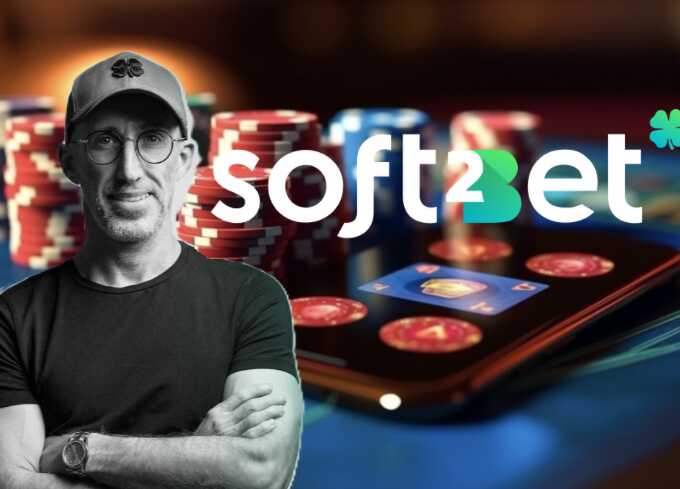
The Rise of the Regulated Gaming Operator
In recent years, the landscape of the gambling industry has evolved tremendously, with an increasing number of players seeking safe and fair gaming experiences. This shift has led to the emergence of the **regulated gaming operator**, which plays a crucial role in safeguarding players and ensuring the integrity of gaming activities. One shining example of a reputable platform in this space is regulated gaming operator SoftBet casino, which sets high standards for responsible gambling and user protection.
Regulated gaming operators are entities that have been granted licenses by relevant authorities to conduct gambling activities. This licensing is done after a thorough evaluation of their practices, systems, and financial standing. By operating under a regulation, these companies provide players with a layer of security, which is paramount given the often predatory nature of unregulated gambling sites. As governments and regulatory bodies continuously work to monitor and enforce these standards, the importance of choosing a regulated operator cannot be overstated.
The Importance of Regulation in Gaming
Regulation in gaming is designed to ensure fair play, protect players from fraud and exploitation, and maintain the integrity of the games offered. A regulated gaming operator must comply with a host of regulations, including but not limited to:
- Fair game outcomes
- Player data protection
- Responsible gaming practices
- Fraud detection and prevention
These regulatory measures are crucial for fostering trust between players and operators. When players know that an operator is licensed and regulated, they are more likely to engage with the platform, confident in the knowledge that their rights will be protected and that they will have recourse if something goes wrong.

How to Identify a Regulated Gaming Operator
Choosing a regulated gaming operator is essential for a safe gambling experience. Here are several key indicators that you can look for:
- Licensing Information: Always verify the operator’s licensing information, which is typically displayed on their website. Trusted jurisdictions include the United Kingdom, Malta, and Gibraltar, among others.
- Third-Party Audits: Reputable operators often have their games audited by independent third-party organizations such as eCOGRA or iTech Labs, which ensure fairness and randomness.
- Player Reviews: Player feedback can offer valuable insights into an operator’s trustworthiness. Look for reviews on independent sites to better understand others’ experiences.
- Responsible Gaming Policies: A commitment to responsible gaming is a hallmark of a regulated operator. They should offer tools and resources to help players gamble responsibly, including deposit limits and self-exclusion options.
The Benefits of Using a Regulated Gaming Operator
Engaging with a regulated gaming operator provides numerous advantages. Some of the primary benefits include:
- Enhanced Security: Regulated operators deploy advanced encryption technologies to protect personal and financial information.
- Fair Gaming Environment: Games are tested for fairness and randomness, ensuring that players have equal opportunities to win.
- Dispute Resolution: Players have access to dispute resolution channels, helping them resolve issues quickly and effectively.
- Access to Support Services: Licensed operators typically provide robust customer support options, including live chat, email, and phone support.
Challenges Faced by Regulated Gaming Operators
While the benefits of regulation are substantial, regulated gaming operators face numerous challenges. Compliance with regulatory standards can be costly and time-consuming, often leading to higher operational costs. Additionally, regulatory environments differ significantly across jurisdictions, complicating operations for global operators.

Another challenge is keeping up with technological advancements, particularly with the rise of mobile gaming and innovations such as cryptocurrency gambling. Operators must adapt quickly to remain competitive while ensuring compliance with all regulations.
The Future of Regulated Gaming Operators
As the gaming industry continues to grow, the importance of regulated operators is likely to become even more pronounced. The rise of technology will necessitate constant adaptation to safeguard players and ensure fair play. Additionally, as more countries begin to regulate online gambling, the market for licensed operators will expand, offering new opportunities for growth and innovation.
Regulatory bodies will likely implement stricter measures related to player protection, responsible gaming, and data security. This evolution will help to further establish a culture of safety and integrity within the industry, allowing players to enjoy their gaming experiences without fear of exploitation.
Conclusion
In conclusion, the regulated gaming operator is a cornerstone of a safe and trustworthy gambling environment. By opting for licensed operators, players can ensure fair treatment, secure transactions, and responsible gaming practices. As the industry progresses, the role of regulation will be critical in not only promoting a sustainable gambling ecosystem but also in protecting the rights and welfare of players globally. Remember, the key to an enjoyable gambling experience lies in choosing reputed, regulated gaming operators.
